
views
Warming up and Stretching

Remove your upper body clothing to get an accurate measurement. Clothing can get in the way of measuring reach properly. It can also make the measurement inaccurate or inconsistent. To get accurate, consistent measurements every time, take off your upper body clothing whenever you are measured. Females can still wear a sports bra, as this won't interfere with the measurement.
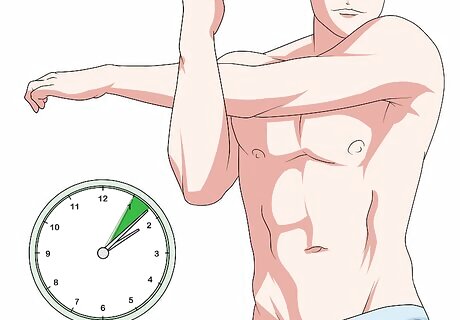
Spend 2–3 minutes warming up with light cardiovascular activity. It's important for your muscles to be warm so that you can reach your best flexibility. Go for a fast walk, a light jog, or try some jumping jacks to spend a few minutes getting your heart rate up. You don't need to do any strenuous exercise. Cycling, skipping, and swimming are also good cardio workouts.
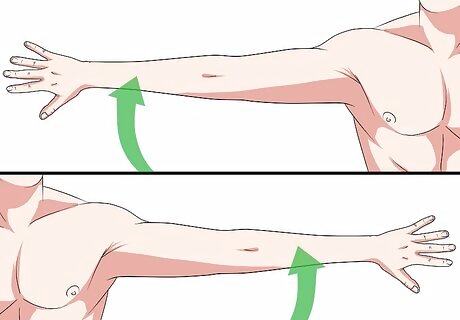
Stretch your arms across your body to reach your peak flexibility. Lift 1 arm at a time and stretch it across your body until you feel a comfortable stretch. Hold your arm parallel to the floor as it crosses over your body and then repeat the exercise with your other arm. This provides a good stretch for both your arms and shoulders, which helps you to maximize your reach. Stretching your arms and shoulders is the best way to release any tension in your shoulder joints and to prepare for the measurement.
Standing Position
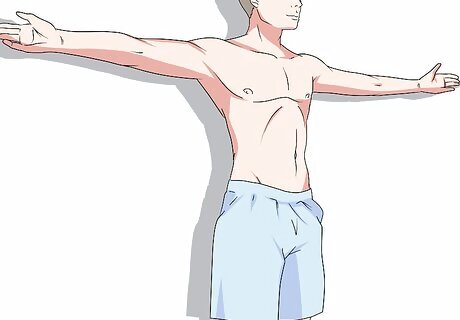
Stand with your back flat against the wall and your shoulders straight. Stand up as straight as you can and make sure that your feet are flat on the ground. Position your heels against the wall so that your back lightly touches the wall. Check that your shoulders aren't hunched forward or pulled back and that they are resting comfortably. Make sure you feel comfortable in your position, as it's important to stand still while you're being measured.
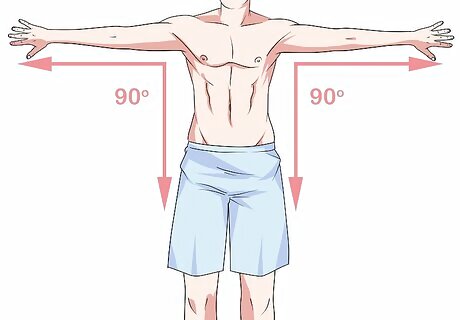
Straighten your arms against the wall at a 90° angle to your body. Lift your arms up to create a straight line from your shoulders to your elbows and aim to get both of your arms at a right angle to your body. Make sure that your arms are parallel with the floor and that your shoulders feel loose and relaxed. It can be helpful to get your friend to check for you if your arms are parallel to the floor, as this is difficult to do without seeing. Alternatively, stand in front of a mirror while you are measuring your reach so that you can check your posture.
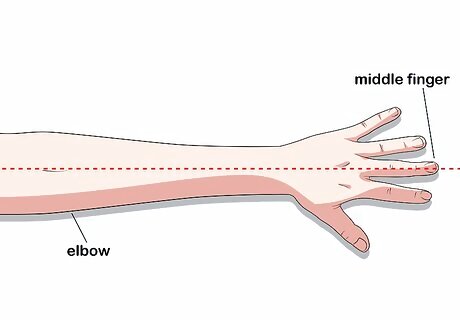
Face your palms to the wall and align your fingers with your elbows. Turn the backs of your hands so they face outward. Look to each side and check that you can see a straight line connecting your middle fingers and your elbows. Make any necessary adjustments to your position if you need to. Overall, your shoulders, elbows, and middle fingers need to line up in a straight line.
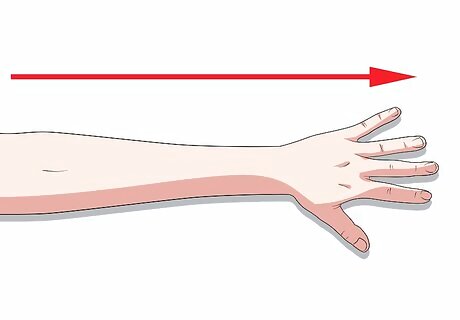
Stretch your arms as far as possible while maintaining this position. Keep your back and arms straight, and your elbows aligned. Stretch outward along the wall starting with your shoulders and then with your elbows. Try to stretch your arms as wide as possible so that you get the best measurement of your reach. Get your friend to take a step back and check that your arms are straight again, as otherwise, this could skew your measurement.
Measuring
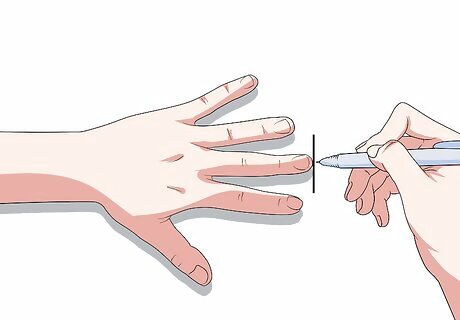
Get your friend to mark the points that your middle fingers reach on the wall. Your friend needs to use a piece of chalk or a pencil to make the markings on the wall. Ensure that the points where your middle fingers hit the wall are measured and not any other fingers, as otherwise, this will give an inaccurate result. Your middle fingers are used for measuring your reach because they are your longest fingers.
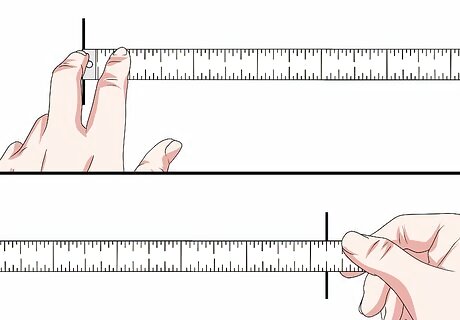
Measure the distance between the 2 points on the wall. Use a tape measure to measure straight against the wall. Start at the first marking that your friend made and measure directly to the second marking. Make sure that the tape measure isn't angled or twisted while you are using it, as this may give an inaccurate result. The measurement is your reach. It can be helpful to get your friend to help you hold the tape measure.
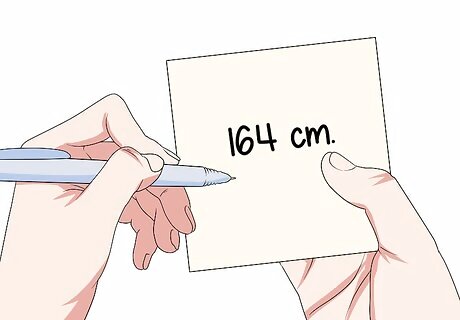
Record your reach in the appropriate units. It's important to record your reach straight away in case you forget it! Write it down on a piece of paper or record it on a device like a smartphone or a laptop. Alternatively, you can get your friend to record it for you. If you are uncertain about your measurement, simply take it again to be sure that you have an accurate result. Make sure that you record the correct units. Reach is usually measured in either inches or centimeters, depending on if your country uses the imperial or metric system of measurement.















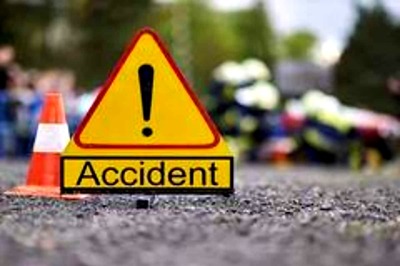



Comments
0 comment